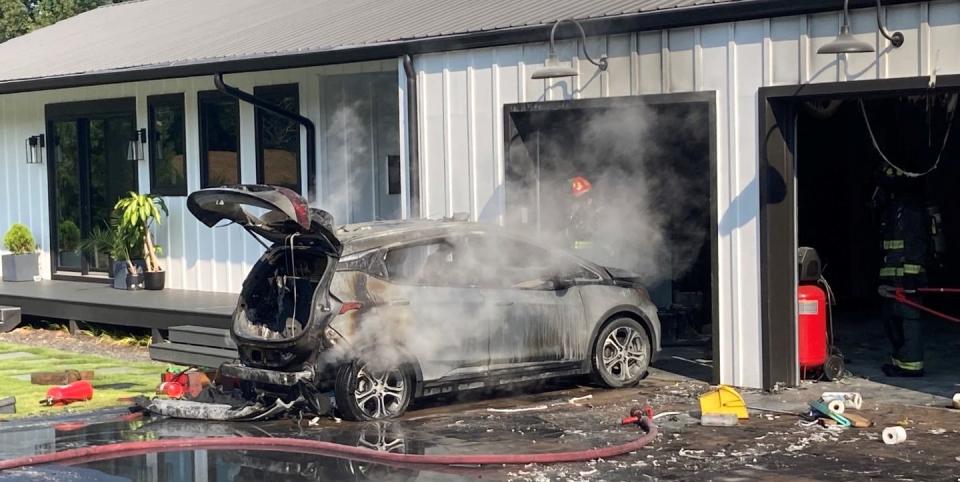The Chevy Bolt's Stressful Recall

"Hearst Magazines and Yahoo may earn commission or revenue on some items through the links below."
Across the timeline of automotive history, there have been a few nameplates that have become infamous. The Pinto. The Edsel. The Fiero. It just might be that we can add a new name to this list. The Bolt. Chevrolet’s all electric vehicle—not to be confused with the hybrid Volt—has been the subject of so many warnings and recalls that it has reached the point of absurdity.
The Bolt was launched in 2017. It received accolades and was even named the North American Car of the Year. And it was easy to see why. A small, reasonably priced EV with great range ratings from a mainstream American manufacturer was a big achievement.
Then, in 2020, something happened: GM announced that some Bolts might have a fire problem when their batteries were charged to full—or nearly so. The cars had “the potential of an unattended fire in the high-voltage battery pack underneath the back seat’s bottom cushion. The affected vehicles’ cell packs have the potential to smoke and ignite internally, which could spread to the rest of the vehicle and cause a structure fire if parked inside a garage or near a house.” Car fires are never a good thing, and the National Highway Traffic Safety Administration requires mandatory recalls for safety-related defects found in automobiles.
At the time, GM suggested that owners of the 2017–2019 cars could continue driving them. They just couldn’t top off the batteries when charging. GM asked owners to limit the charging to 90 percent on unsold cars and for owners to do the same while GM worked on a fix.
Then, NHTSA announced that it had been made aware of five Chevy Bolts that had caught fire. Two injuries were reported—so NHTSA suggested the vehicles should be parked outside until the problem was resolved. Oh, and don’t charge it overnight. GM also suggested that the batteries should not be discharged below 70 miles of remaining range either. So, don’t charge them too much and don’t discharge them too far.
This past August, GM announced the recall of all Bolts—from 2017 through 2022—something to the effect of 140,000 cars. The proposed fix is to replace the batteries. All of them, in all of the cars. In recent history, massive recalls of this sort have happened. Think: Takata airbags. The problem, of course, is how long it will take GM to come up with replacement batteries for all of the cars in the recall. It will also cost something to the tune of $1.8 billion, a figure GM will certainly seek reimbursement for from LG, its battery supplier.
Finally, as if the full recall of every Bolt ever made wasn’t enough, GM warned Bolt owners to not park their car near other vehicles until the recall repairs were performed. Parking it in a crowded lot? Keep it 50 feet from other cars and, preferably, park on the top deck. What if someone parks near your Bolt after you have parked it safely away from others? Just hope the Bolt doesn’t spontaneously combust in the meantime.
Cars on fire seem to be something American consumers tend to avoid, and the amount of publicity the Bolts have gotten—particularly all of the warnings—might make consumers wary. You can check www.nhtsa.gov to see if your Bolt is part of the recall, but it really isn’t necessary. It is. They all are.
Steve Lehto is a writer and attorney from Michigan. He specializes in Lemon Law and frequently writes about cars and the law. His most recent books include Preston Tucker and His Battle to Build the Car of Tomorrow and Dodge Daytona and Plymouth Superbird: Design, Development, Production and Competition. He also has a YouTube channel where he talks about these things.
You Might Also Like

 Yahoo Autos
Yahoo Autos 